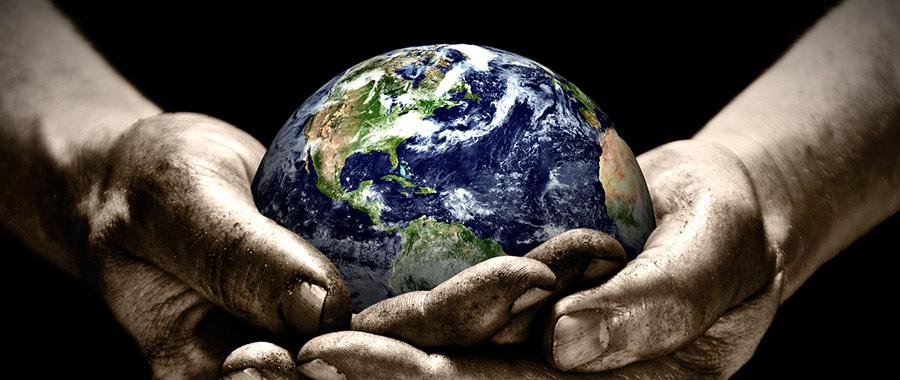The quest for world peace has permeated human aspirations since time immemorial. The Bahá’í teachings, rooted in the principles of harmony and unity, present a compelling framework aimed at cultivating a world free from the scourge of war. War, often seen as the pinnacle of human conflict, can be attributed to a myriad of factors, ranging from ethno-nationalistic fervor to economic competition. Yet, the genesis of such hostilities frequently stems from deeper, more intrinsic societal discord. The Bahá’í perspective invites us to explore these underlying dilemmas while offering pragmatic solutions to the crises that beset humanity.
The imperative for peace necessitates an interrogation of the societal structures that engender conflict. Central to the Bahá’í paradigm is the recognition of the oneness of humanity. This tenet posits that all individuals, regardless of nationality, race, or religion, are part of a singular human family. When this essential unity is recognized and embraced, the barriers that precipitate discord begin to dissolve. The psychological transformation from viewing others as adversaries to acknowledging them as fellow travelers on the path of existence is pivotal in eliminating the impetus for war.
Moreover, the Bahá’í teachings advocate for the eradication of all forms of prejudice. These prejudices, whether founded on race, religion, or socio-economic status, serve as a fertile ground for animosity and hostility. It is imperative that a concerted effort be made to raise consciousness regarding these biases, which often lead to social fragmentation and, ultimately, violent conflict. As individuals engage in self-reflection and seek to foster an attitude of inclusivity, the very fabric of society begins to strengthen against the onslaught of division.
Additionally, the Bahá’í writings emphasize the importance of justice. A societal structure that lacks equitable distribution of resources and opportunities inevitably gives rise to feelings of disenfranchisement and desperation. When marginalized groups perceive systemic injustice, the likelihood of their resorting to violent uprising increases significantly. Therefore, instituting a just social order is paramount in diminishing the allure of war. This aligns with the Bahá’í principle of the necessity of wealth distribution, where economic disparities are addressed through fair systems that promote prosperity for all.
Education emerges as a cornerstone of the Bahá’í framework for achieving a world devoid of war. Knowledge and discernment cultivate informed citizens who are capable of critically engaging with the world’s complexities. Educational systems, therefore, ought to incorporate holistic curricula that not only impart academic knowledge but also nurture moral and ethical values. Such an educational paradigm fosters a generation resilient against the dogma that fuels conflict. By instilling compassion, empathy, and the habit of collective problem-solving, Bahá’í teachings assert that individuals can be equipped to navigate the tumultuous waters of global discord.
The call for disarmament is another critical aspect of the Bahá’í perspective on peacebuilding. The resources allocated to military expenditures could be redirected toward humanitarian and developmental projects, which in turn alleviate the conditions precipitating conflict. The teachings advocate for a global governance framework that prioritizes dialogue over hostility, thereby promoting collaborative approaches to conflict resolution. International bodies, underpinned by Bahá’í principles, can facilitate dialogue that refrains from paternalism and instead embodies mutual respect.
In addition to structural changes, the spiritual dimension of peacemaking cannot be overstated. The Bahá’í teachings espouse that true peace is ultimately a reflection of spiritual transformation. As individuals embark on a path of personal growth and ethical living, they begin to influence their communities positively. Spirituality fosters qualities such as forgiveness, humility, and service, which serve as antidotes to the cycles of violence and retaliation that pervade society. Engaging in spiritual practices, thus, becomes a foundational strategy for promoting a culture of peace.
Furthermore, the role of community building cannot be underestimated in the quest for a war-free world. Empowering local communities to address their own conflicts through initiatives rooted in the principles of collaboration and collective action can yield transformative outcomes. This grassroots-level approach nurtures resilience, as communities learn to celebrate their diversity while working together towards common goals. The Bahá’í emphasis on community cohesion elucidates the necessity of fostering a sense of belonging, which can diminish the allure of extremist ideologies that often thrive in isolation.
In conclusion, the Bahá’í teachings present a multifaceted approach to building a world free from war, urging humanity to transcend its limitations through the adoption of unity, justice, education, disarmament, spirituality, and community-building. While these principles may seem idealistic, they serve as a clarion call for proactive engagement in the search for peace. The realization of a harmonious world demands a collective commitment to these tenets; only then can the emergence of a society devoid of war become feasible. As individuals align their actions with these transformative teachings, they contribute to the emergence of a new paradigm wherein peace is not merely an aspirational ideal but a lived reality.
